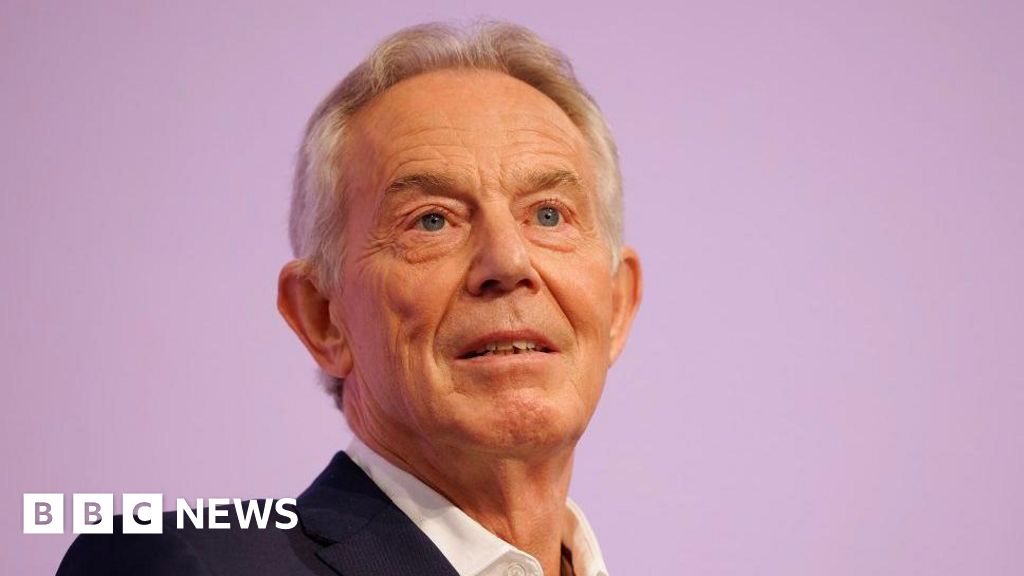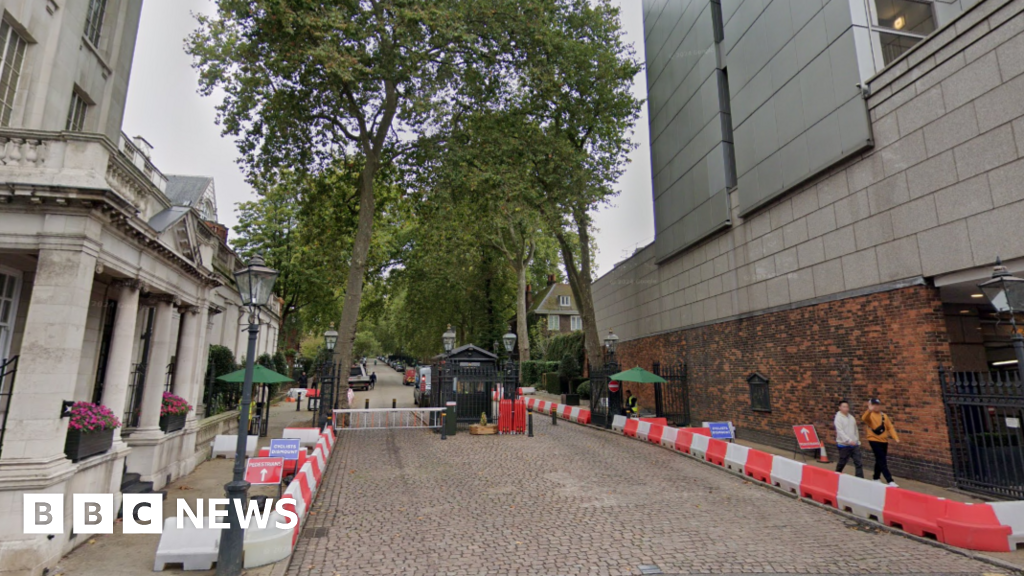The government has defended its net-zero policies after Sir Tony Blair said limiting fossil fuels was “doomed to fail” and a new approach was needed.
The former Labour prime minister argued the debate on climate change had become “irrational” and people in rich countries no longer wanted to make financial sacrifices “when they know that their impact on global emissions is minimal”.
His comments have been seized on by opposition parties as an attack on Sir Keir Starmer’s plan to achieve net zero carbon emissions in the UK by 2050.
But Labour ministers insist the drive to net zero will not involve any financial sacrifices and have minimal impact on people’s lives.
It comes as a highly critical report by the independent Climate Change Committee says Labour has made very little progress in preparing the UK for the growing threats posed by rising temperatures since coming to power.
Environment Secretary Steve Reed told Times Radio that Sir Tony had made “a valid and important contribution” to the climate change debate.
“I agree with much of what he said, but not absolutely every word and dot and comma of it,” he added.
“But this government is moving to clean energy because it’s best for Britain. It’s more energy security for Britain.”
He said the government’s plan to replace nearly all fossil fuels for electricity generation with wind, solar and wave energy by 2030 was aimed at breaking the UK’s “dependency” on “fossil fuel dictators” like Vladimir Putin and it would lead to lower energy bills.
In a report by the Tony Blair Institute, Sir Tony argues that the expected global rise in fossil fuel use and the doubling of airline travel over the next 20 years undermines current climate policies.
“These are the inconvenient facts, which mean that any strategy based on either ‘phasing out’ fossil fuels in the short term or limiting consumption is a strategy doomed to fail,” he wrote.
The report says existing carbon targets should be kept in place to give certainty to business but a rethink of how they are achieved was urgently needed.
It says the focus should instead be on emerging technologies such as carbon capture and storage and nuclear fusion – and new international effort to persuade the world’s biggest economies, such as China and India, to cut their emissions.
To help achieve the 2050 target, Labour and the previous Conservative government made a series of pledges including “clean” electricity, ending the sale of petrol and diesel cars by 2030 – and installing 600,000 electric heat pumps a year by 2028.
Conservative leader Kemi Badenoch recently ditched her party’s support for net zero by 2050.
Shadow environment secretary Victoria Atkins said there was “consensus across the board” on the need to protect the environment, but that “we have to take the public with us”.
And she said Sir Tony Blair had sent a “clear message” to the government that it needs to “rethink” its approach to net zero.
Following the response to the former PM’s comments, the Tony Blair Institute emphasised the report’s support for the government’s approach.
A spokesperson said: “The report is clear that we support the government’s 2050 net zero targets, to give certainty to the investors and innovators who can develop these new solutions and make them deployable.
“People support climate action, and it is vital that we keep the public’s support for how we do it.”
But Sir Tony’s intervention has highlighted divisions in Labour over net zero.
Some on the right of the party argue that the government is not doing enough to support workers and save jobs in the oil and gas sector in the transition to clean power.
But Labour-supporting environmental campaigners have accused Sir Tony of handing ammunition to the Conservatives and Reform UK.
One told the BBC the publication of his report on the eve of local elections was a sign that Sir Tony was losing influence over Sir Keir Starmer.
“This is an oddly public and oddly-timed intervention that would usually be made by someone struggling for access,” he added.
In a sign of the acrimony swilling around this debate within Labour, one government source suggested Sir Tony’s comments may have been affected by the Tony Blair Institute having received funding from oil rich Saudi Arabia.
The Labour Party has had a complicated relationship with Sir Tony and his legacy since he left Downing Street in 2007.
Ed Miliband’s election as leader in 2010 over his brother, David, was seen in part as a repudiation of Blairism, as was Jeremy Corbyn’s leadership to a much greater extent.
But since Sir Keir Starmer became leader in 2020 he has often embraced the most electorally-successful leader in Labour’s history. He has also hired some of the leading figures from Sir Tony’s Downing Street.
Jonathan Powell, Downing Street chief of staff under Sir Tony, is now Sir Keir’s national security adviser, and Liz Lloyd, a former deputy chief of staff, is now back as director of policy delivery.
Lord Mandelson, one of Sir Tony’s closest political friends and a former cabinet minister, is now the UK ambassador to Washington.
















Leave a Reply